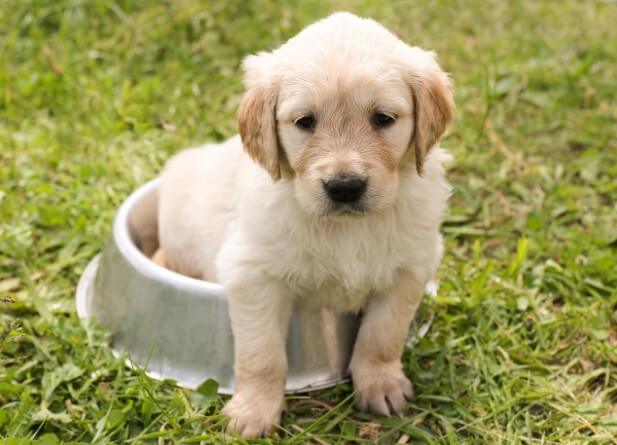Bringing home a large breed puppy is an exciting and rewarding experience, but it also comes with significant responsibilities. As a pet owner, you play a crucial role in shaping their health and well-being.
Large breed puppies have unique needs and challenges due to their size and rapid growth rate, and understanding how to care for them properly is essential for their long-term health.
In this comprehensive guide, we will explore essential tips and guidelines to ensure your large breed puppy receives the best care possible.
Table of Contents
Understanding Large Breed Puppies
Large breed puppies are typically those whose adult weight exceeds 50 pounds. They often grow at a faster pace than smaller breeds, and their development can be divided into distinct stages. Understanding these stages allows us to provide appropriate care at each phase of their growth, promoting healthy bone and muscle development.
Common Large Dog Breeds and Their Characteristics
Large dog breeds come in various shapes and sizes, each with unique temperaments and characteristics. We’ll explore popular large breeds, such as Labrador Retrievers, German Shepherds, Golden Retrievers, and Great Danes, discussing their specific needs and predispositions to certain health issues.
Nutrition for Large Breed Puppies
Proper nutrition is the foundation of a large breed puppy’s health. A balanced diet ensures they receive the necessary nutrients for their rapid growth and development. For large breed puppy food, the right combination of proteins, fats, carbohydrates, vitamins, and minerals supports healthy bone and muscle growth while preventing obesity.
Specific Nutritional Requirements
Large breed puppies have different nutritional needs compared to their smaller counterparts. We’ll delve into the specific requirements for proteins, fats, calcium, phosphorus, and other essential nutrients. Providing the right nutrients in the correct proportions helps prevent developmental issues like hip dysplasia and other bone-related disorders.
Feeding Frequency and Portion Control
Overfeeding can lead to excessive weight gain, which puts undue stress on the puppy’s growing bones and joints. We’ll discuss feeding frequency and portion control to ensure your puppy maintains a healthy weight throughout their growth stages.
Identifying Dietary Sensitivities and Allergies
Some large breed puppies may have food sensitivities or allergies, which can manifest as skin issues or gastrointestinal problems. We’ll provide guidance on identifying and managing these dietary issues to ensure your puppy’s overall well-being.
Exercise and Physical Activity for Large Breeds
Regular exercise is vital for large breed puppies to maintain a healthy weight, develop strong muscles, and stimulate their minds. Engaging in physical activities helps prevent behavioral issues caused by pent-up energy.
Age-Appropriate Exercises and Activities
In a recent article by Happy Pet Deals, puppies have different exercise needs at various stages of development. We’ll explore age-appropriate exercises, including playtime, short walks, and mental stimulation, while highlighting activities that avoid excessive stress on their growing joints.
Preventing Excessive Exercise
While exercise is crucial, it’s equally important to avoid overexerting your large breed puppy, especially during their rapid growth phase. Too much activity can strain their developing bones and increase the risk of musculoskeletal problems later in life.
Incorporating Mental Stimulation and Playtime
Mental stimulation is essential for a puppy’s cognitive development. We’ll suggest interactive toys and games that challenge your puppy’s mind while keeping them entertained.
Healthcare and Veterinary Visits
Regular veterinary check-ups are vital for monitoring your puppy’s growth and health. We’ll discuss the importance of keeping up with vaccination schedules to protect your puppy from common diseases.
Preventive Measures for Common Health Issues
Large breed puppies are prone to specific health issues, such as hip dysplasia and bloat. We’ll explore preventive measures, including appropriate exercise, diet, and environmental factors, to reduce the risk of these conditions.
Spaying/Neutering Considerations and Timing
Deciding when to spay or neuter your large breed puppy can impact their growth and development. We’ll discuss the pros and cons of different timing options based on breed and size.
Dental Care and Grooming Tips
Dental health is often overlooked but critical for a puppy’s overall well-being. We’ll provide grooming tips and discuss dental care practices to maintain their oral hygiene.
Training and Socialization
Early training sets the foundation for a well-behaved and obedient adult dog. We’ll cover basic obedience commands and positive reinforcement techniques that motivate your puppy to learn and follow commands.
Socialization with People, Other Dogs, and Animals
Proper socialization is essential for your puppy’s future behavior and temperament. We’ll guide you on introducing them to various people, dogs, and animals in safe and positive environments.
Addressing Behavioral Challenges
Despite your best efforts, some behavioral challenges may arise. We’ll provide strategies for addressing common issues like chewing, digging, and separation anxiety in a constructive manner.
Safety and Living Environment
Puppies are naturally curious and can get into trouble if their environment isn’t safe. We’ll offer tips on puppy-proofing your home to prevent accidents and injuries.
Choosing Appropriate Dog Supplies and Equipment
Large breed puppies require specific supplies, including the right-sized crate, bed, and toys. We’ll help you choose the best products to accommodate their size and needs.
Puppy-Proofing Your Home
Puppy-proofing involves identifying and removing potential hazards that could harm your puppy. We’ll provide a comprehensive checklist to ensure your home is a safe environment for your furry friend.
Traveling with Large Breed Puppies
Traveling with your large breed puppy can be enjoyable, but it requires careful planning and safety measures. We’ll provide tips for safe car travel and suggest appropriate carriers and restraints.
Preparing for Trips and Adjusting to New Environments
Puppies may find traveling and new environments stressful. We’ll offer guidance on preparing them for trips and helping them adjust to new places and experiences.
Common Mistakes to Avoid
Caring for large breed puppies can be challenging, and pet owners may unintentionally make mistakes. We’ll discuss common errors and how they can impact your puppy’s health and behavior.
Avoiding Overfeeding and Overexercising
Overfeeding and overexercising are significant concerns for large breed puppies. We’ll emphasize the importance of moderation and proper portion control to prevent potential health issues.
Conclusion
Caring for large breed puppies requires dedication, knowledge, and love. By understanding their unique needs, providing a balanced diet, regular exercise, proper training, and a safe living environment, you can ensure your large breed puppy grows into a healthy and happy adult dog.
Remember to seek professional advice when needed and enjoy the journey of raising a loyal and cherished companion for many years to come.




![Best Dog Breeds in India for Home [2022] Dachshund Price in India](https://petsyfy.com/wp-content/uploads/2022/07/Dachshund-Price-in-India-150x150.jpeg)

![[Report] New German Shepherd Husky Mix Price Worldwide image-4](https://petsyfy.com/wp-content/uploads/2023/11/image-4-150x150.png)